I encounter prejudices against e-mobility from people I know time and again. Often, it’s not even a matter of simply preferring the internal combustion engine, but rather of prevailing fears about suitability for everyday use, charging infrastructure, or range.
It’s time to dispel these prejudices and go from A to B under real-world test conditions. In our case, we’re doing it literally: from the small town of Å on the southern tip of the Norwegian archipelago of Lofoten to Bee in the Italian region of Piedmont, about 4,500 kilometres away.

With 19 inhabitants per square kilometre, the Lofoten Islands are one of the most sparsely populated regions in Europe. This means ideal conditions for us to explore the expansion of the charging infrastructure in thinly populated areas right at the start of our adventure.
From the remote Lofoten Islands back to urban sprawl
Norway is considered a model country when it comes to the market share of all-electric vehicles. According to the Norwegian Road Information Authority (OFV), an astonishing 71.9 per cent of new registrations in August 2021 were electric vehicles. It takes about 30 minutes to drive from our accommodation in Å to the nearest high-power rapid charger, and we are more than happy with the additional driving time – it gives us a chance to enjoy the beautiful Nordic landscape.
Another advantage of e-mobility is that you can charge your car at home using a wallbox. The Porsche Taycan 4 Cross Turismo charges from zero to 100 per cent in nine hours with a charging output of 11 kW – or half that time with the optional 22 kW version – so it’s no problem to get a full charge overnight, ready for new adventures the next morning.
On charging times, deceleration and e-mobility in everyday life
We discover that the best charging times can be achieved at high-power rapid chargers, which we increasingly find along major dual carriageways and motorway routes. With a potential 350 kW of power at some IONITY chargers, we can charge the Taycan at a rate of up to 270 kW in 20 minutes to about 80 per cent. The sophisticated temperature control system assists the process considerably. Navigating to these spots via the Porsche Charging Planner enables the Porsche Taycan 4 Cross Turismo to pre-condition its batteries in such a way as to enable the most efficient charging stop possible. As a result, the process doesn’t take much longer than a regular fuel stop at conventional fossil fuel stations.
We take advantage of this sophisticated technology for the first time on our way to Stockholm, a route with ample charging opportunities. From our second stop in Kiruna, in Swedish Lapland, we take a quick dip into Finland before taking a well-earned rest at a waterfront house. The longest continuous leg of the journey is complete – and we’ve always found it easy to charge the Porsche Taycan Cross Turismo in good time.
Travelling with the Porsche Taycan 4 Cross Turismo
Like every trip, this one began with packing our suitcases. Here, too, Porsche’s Cross Utility Vehicle (CUV) proves to be the perfect travel companion, with 530 litres of luggage space and an additional 1,296 litres including the seating area. Yes, the Cross Turismo offers exceptional driving pleasure, but it also has plenty of room for the whole family.
The first few days have flown by: by now we have crossed through Norway, Finland and Sweden. Time for a stopover in Copenhagen. Denmark’s capital has set itself the goal of becoming the world’s first climate-neutral metropolis. In addition to government subsidies for the purchase of electric vehicles, drivers of electric cars also enjoy perks day to day. For example, parking fees now only apply to cars with internal combustion engines, the costs of which have risen sharply.
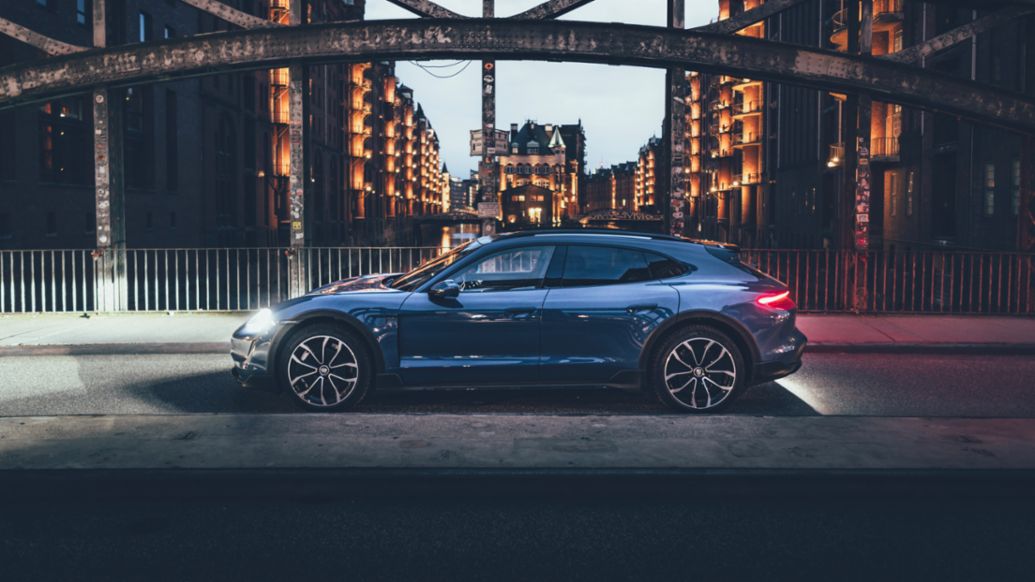
Time to get a taste of home and make a north-to-south run through Germany. We complete the Hamburg-Stuttgart stretch with just two charging stops, each lasting just under 20 minutes. And speaking of the German autobahn, I just couldn’t resist the smile-inducing g-forces produced by the insane torque of the all-electric Porsche. In Sport Plus driving mode, the centrifugal forces rocket me into the seats like no vehicle I’ve ever driven. Is it fun? Oh yes!
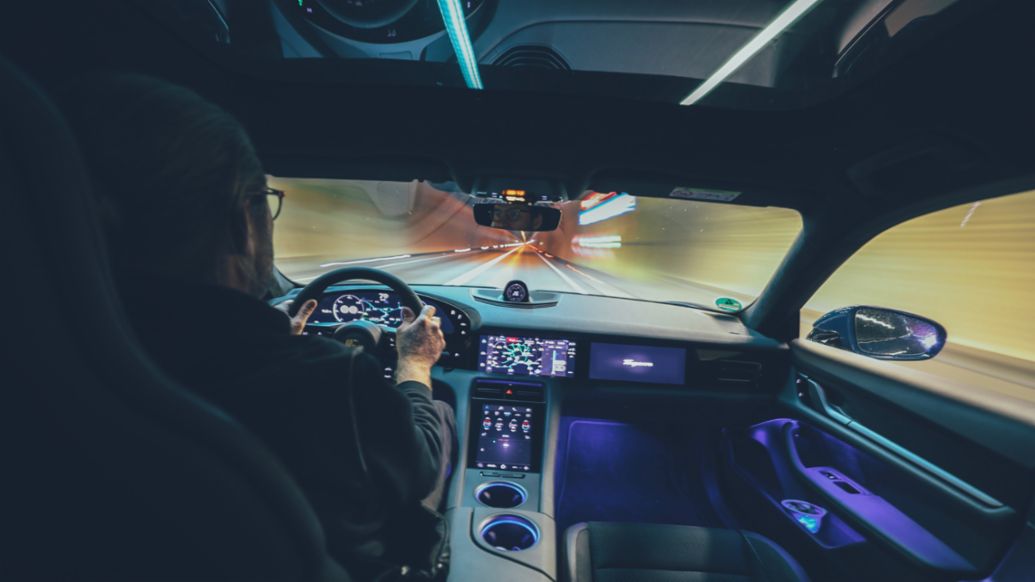
Our final destination is just around the corner. One of the last stages leads us over the Austrian Alps. The pass over the Timmelsjoch offers a multitude of exhilarating twists and turns. Time to enjoy the Porsche Taycan’s low centre of gravity. Thanks to its underfloor batteries, the sports car sits perfectly on the road and virtually melts into it. The fact that you’re in a car with plenty of cargo volume and rear seats fades into the background: it’s still a typical Porsche with plenty of wow-factor.
After 12 days on the road we arrive at our destination. Not once were we unable to supply our faithful companion with electricity. Along the routes where it was necessary to cover long stretches, the IONITY network offered excellent coverage with high-power chargers. Even before leaving Scandinavia, we were able to save time using 350 kW high-performance charging stations. The higher the available output, the more expensive the energy, but it was still cheaper than the comparable petrol or diesel fuel costs: Taycan owners pay just 33 cents per kWh with IONITY, thanks to the Porsche Charging Card.
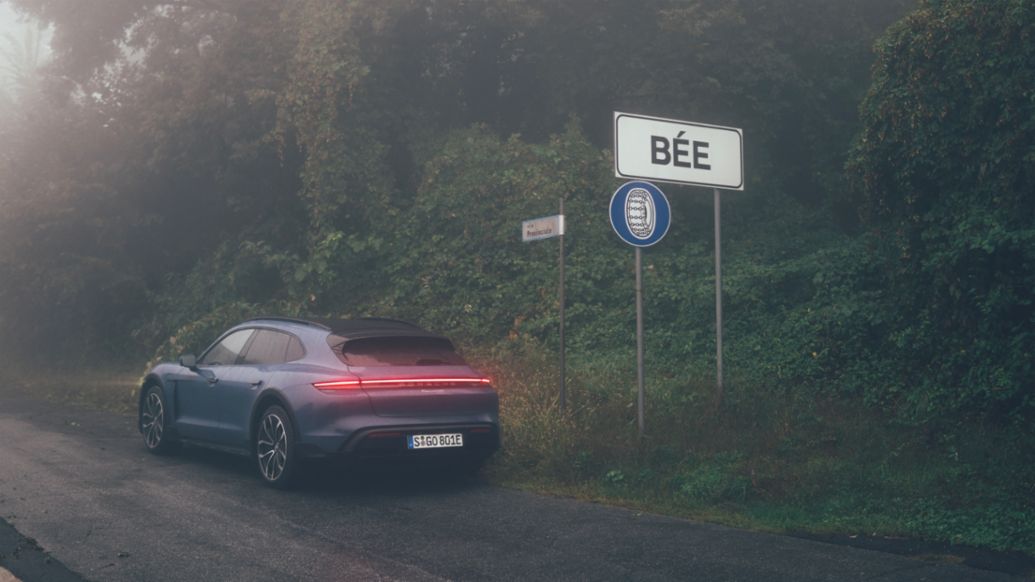
With all that, we were able to convincingly dispel prevailing fears about everyday usability, charging infrastructure, and range. It is with a heavy heart that I have to part ways with my now- dear companion. See you soon, faithful travel buddy. I’ll save you a spot in our garage!
Info
Author: Thies Janknecht, uberding.net
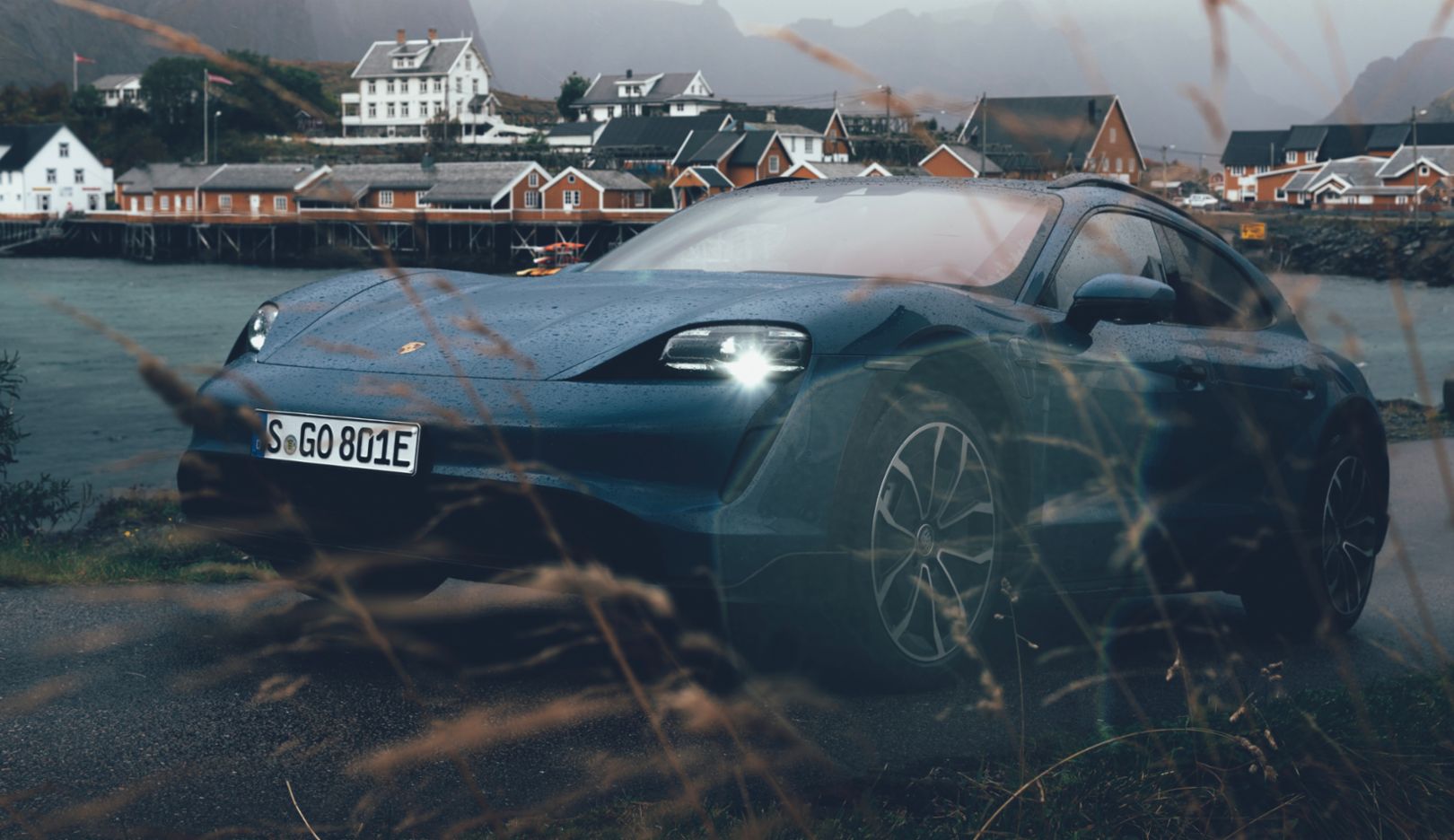
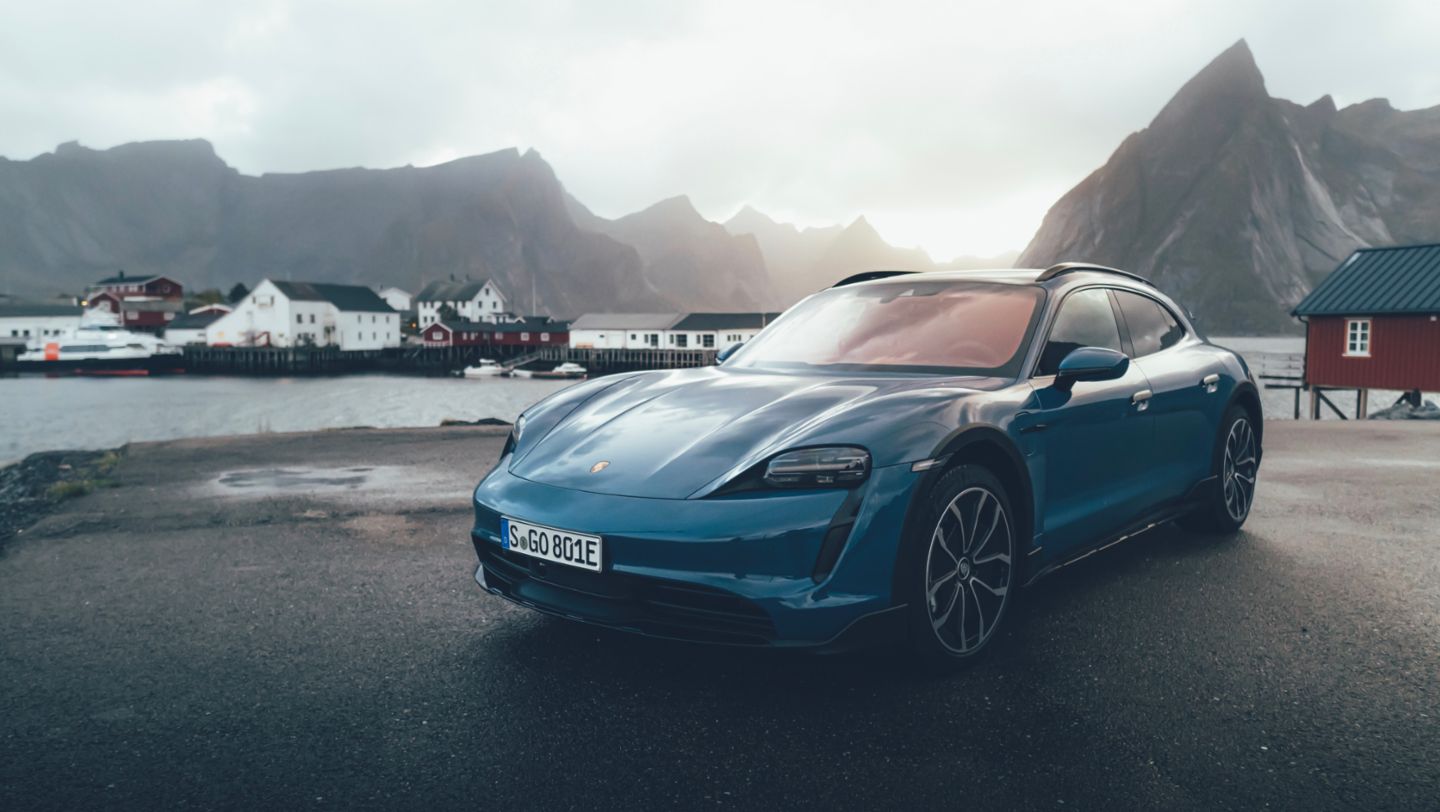


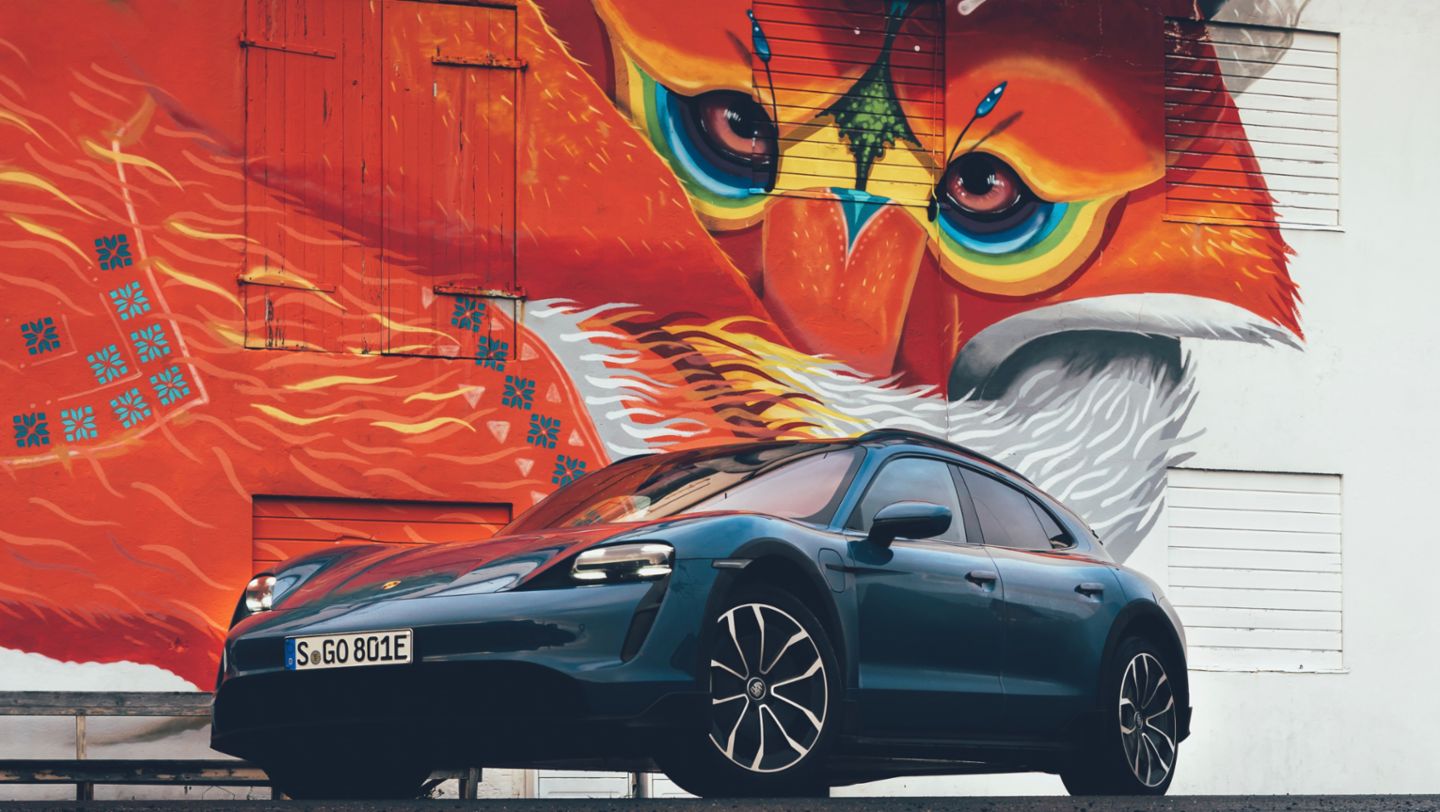

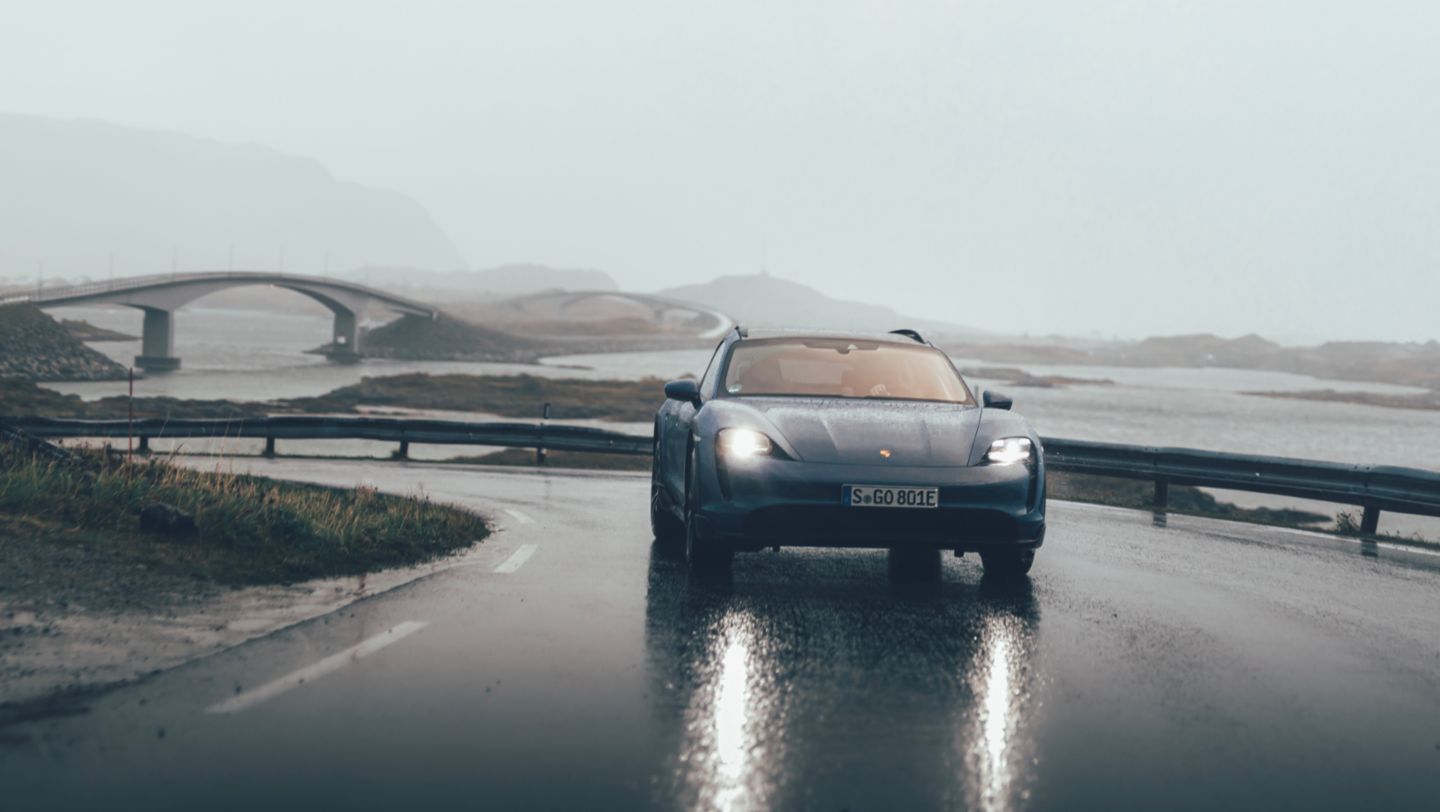
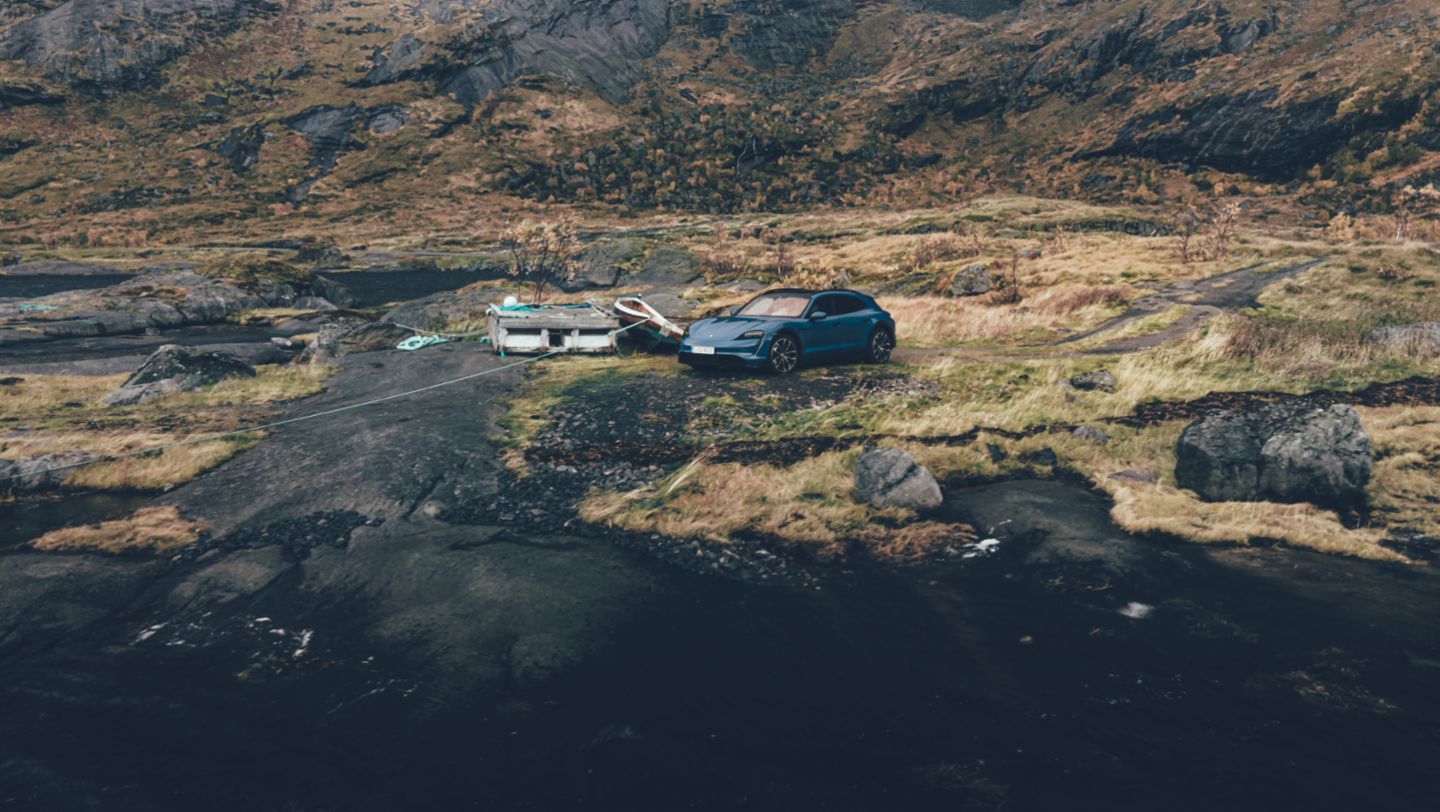
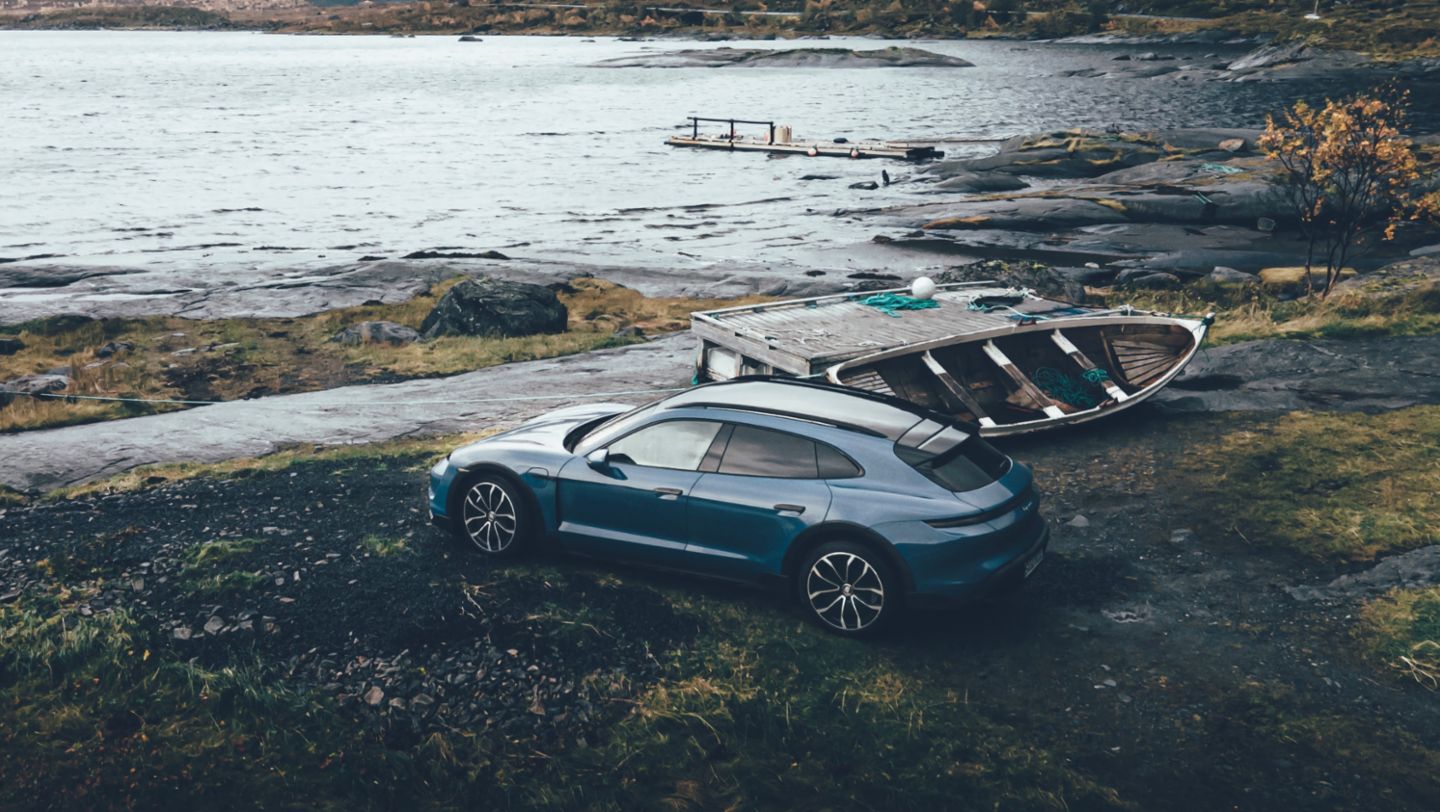

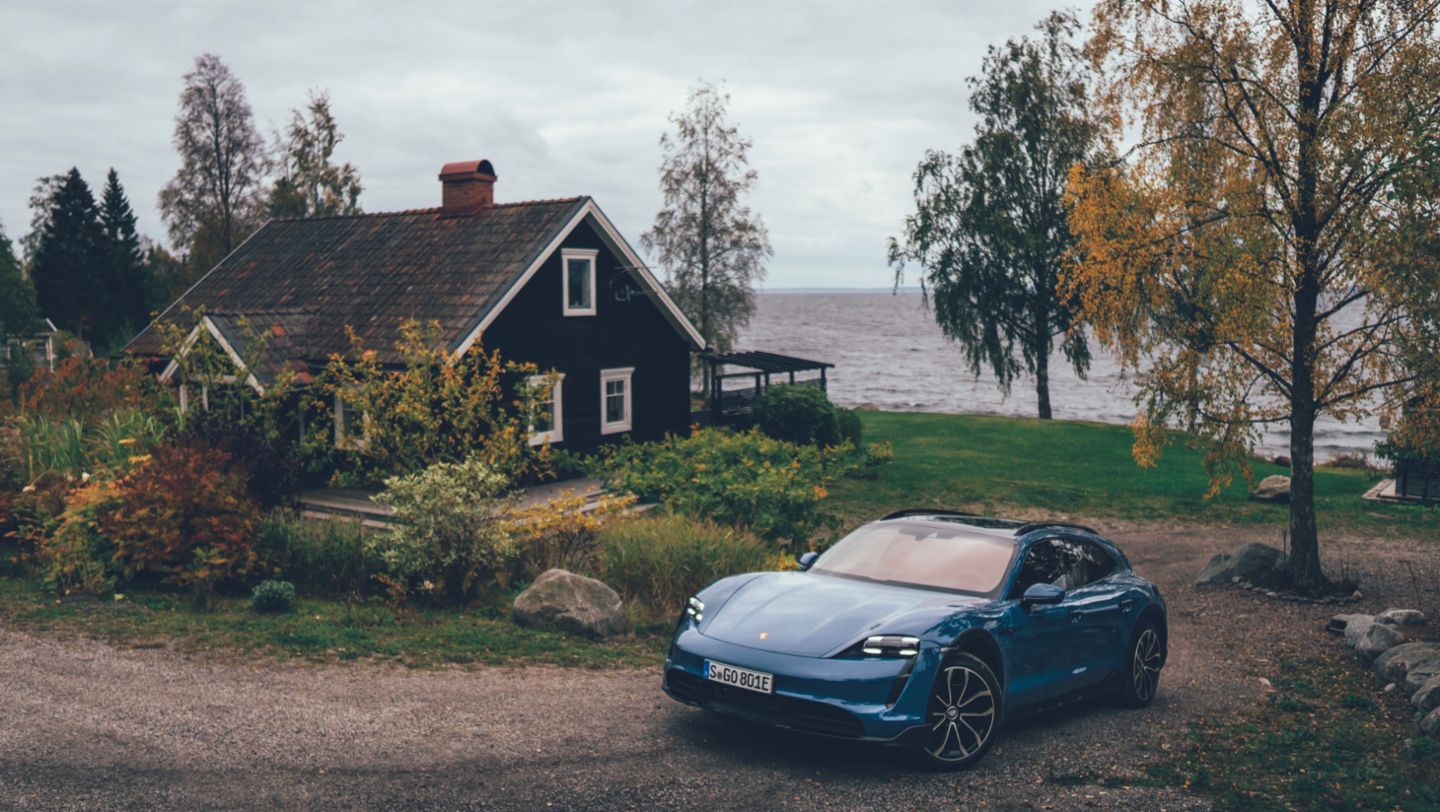

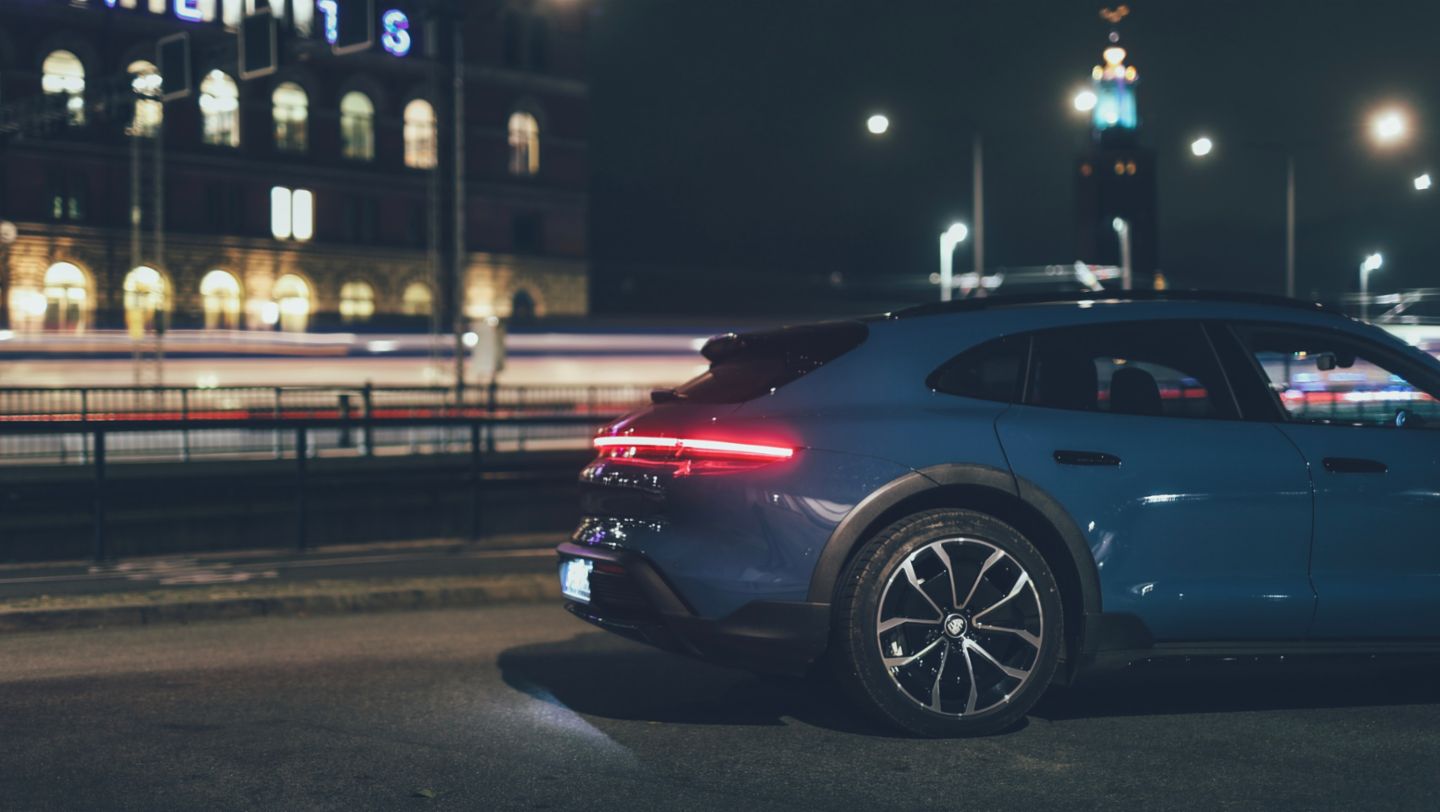
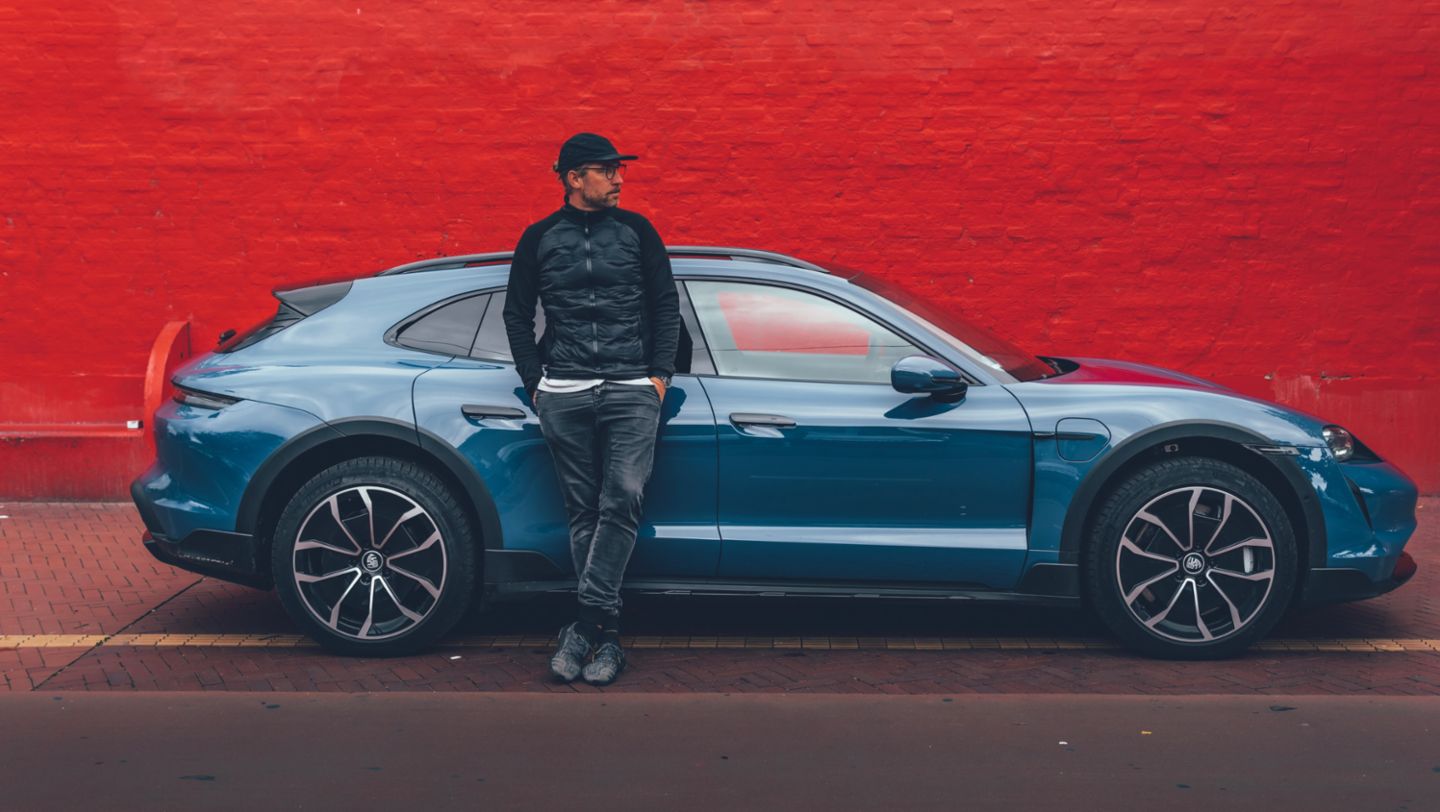
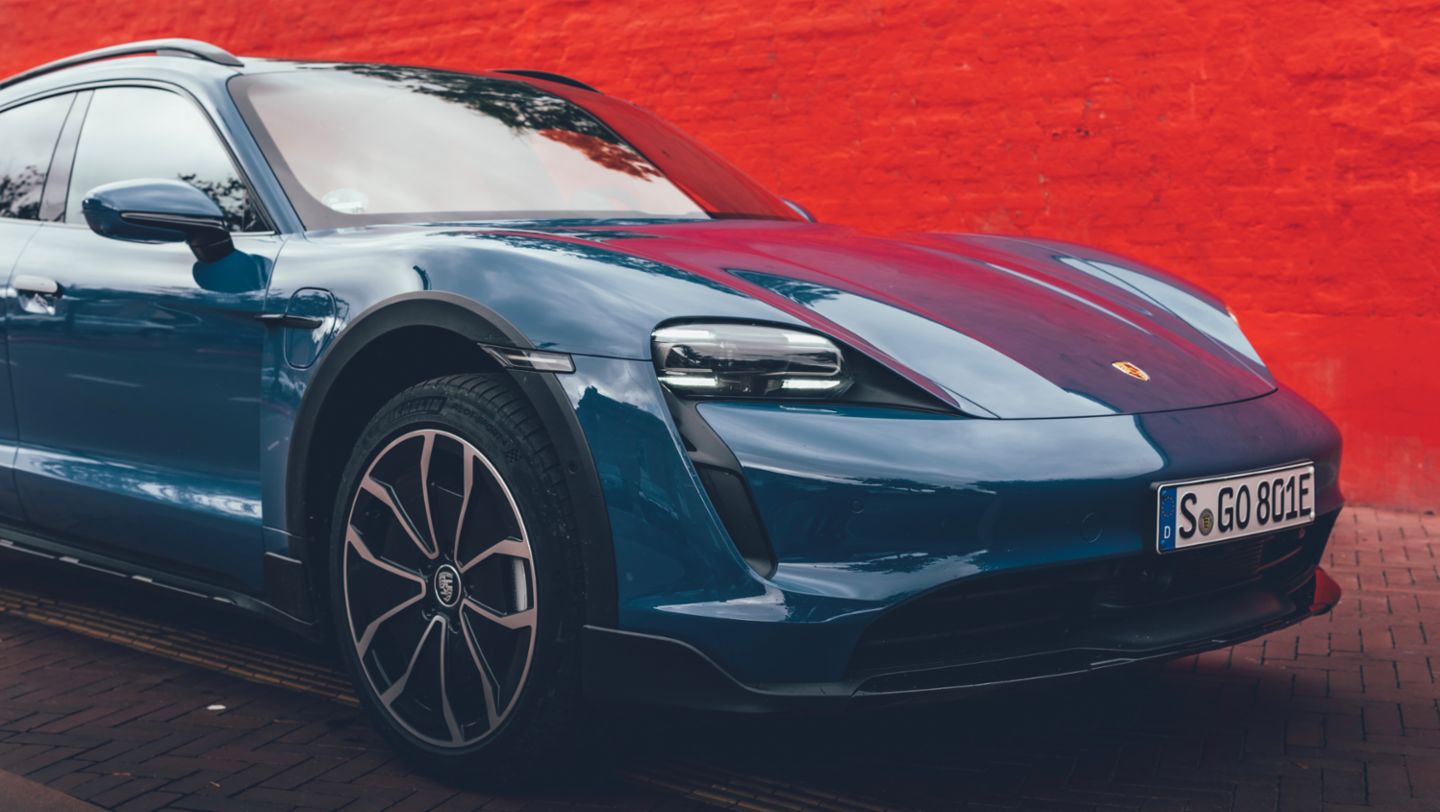
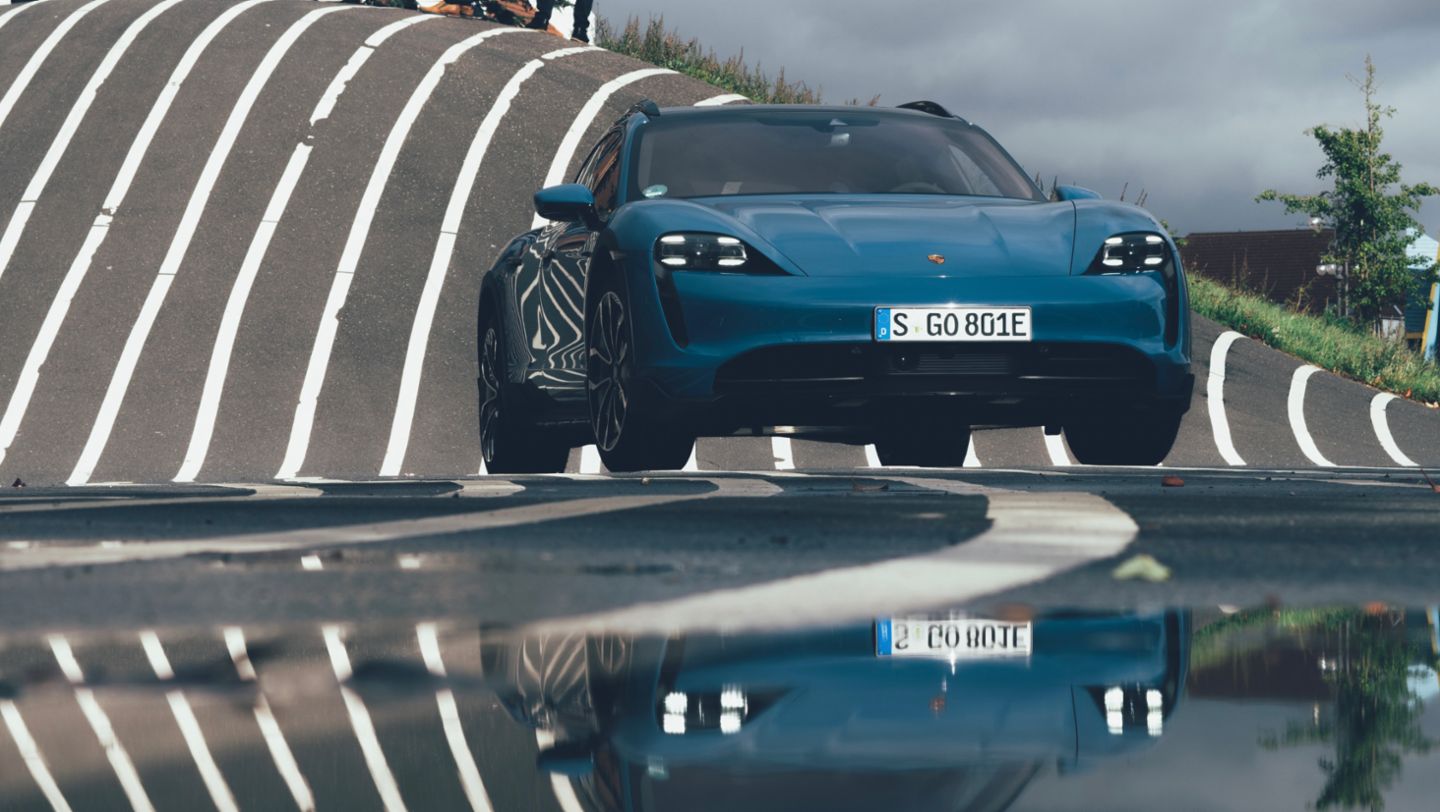
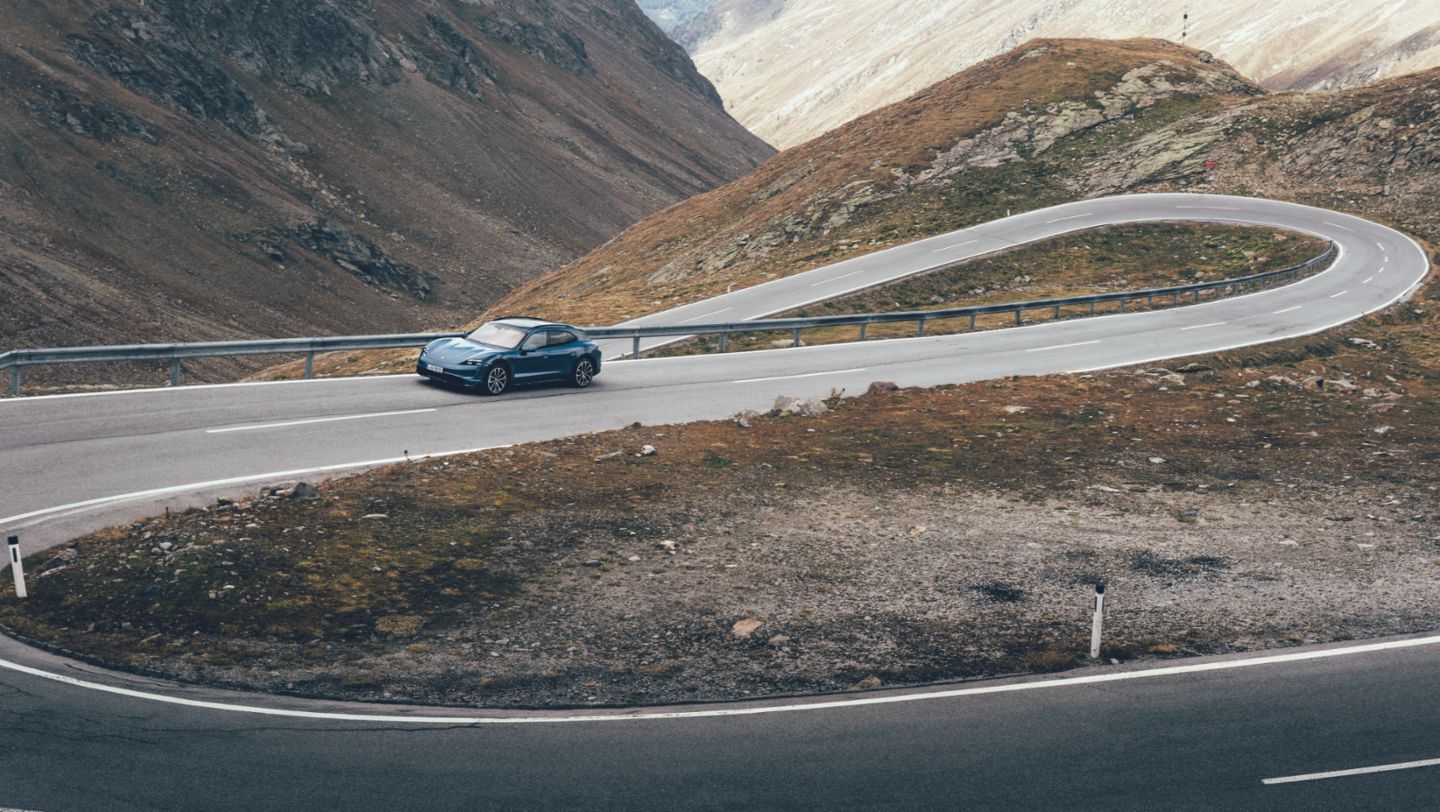
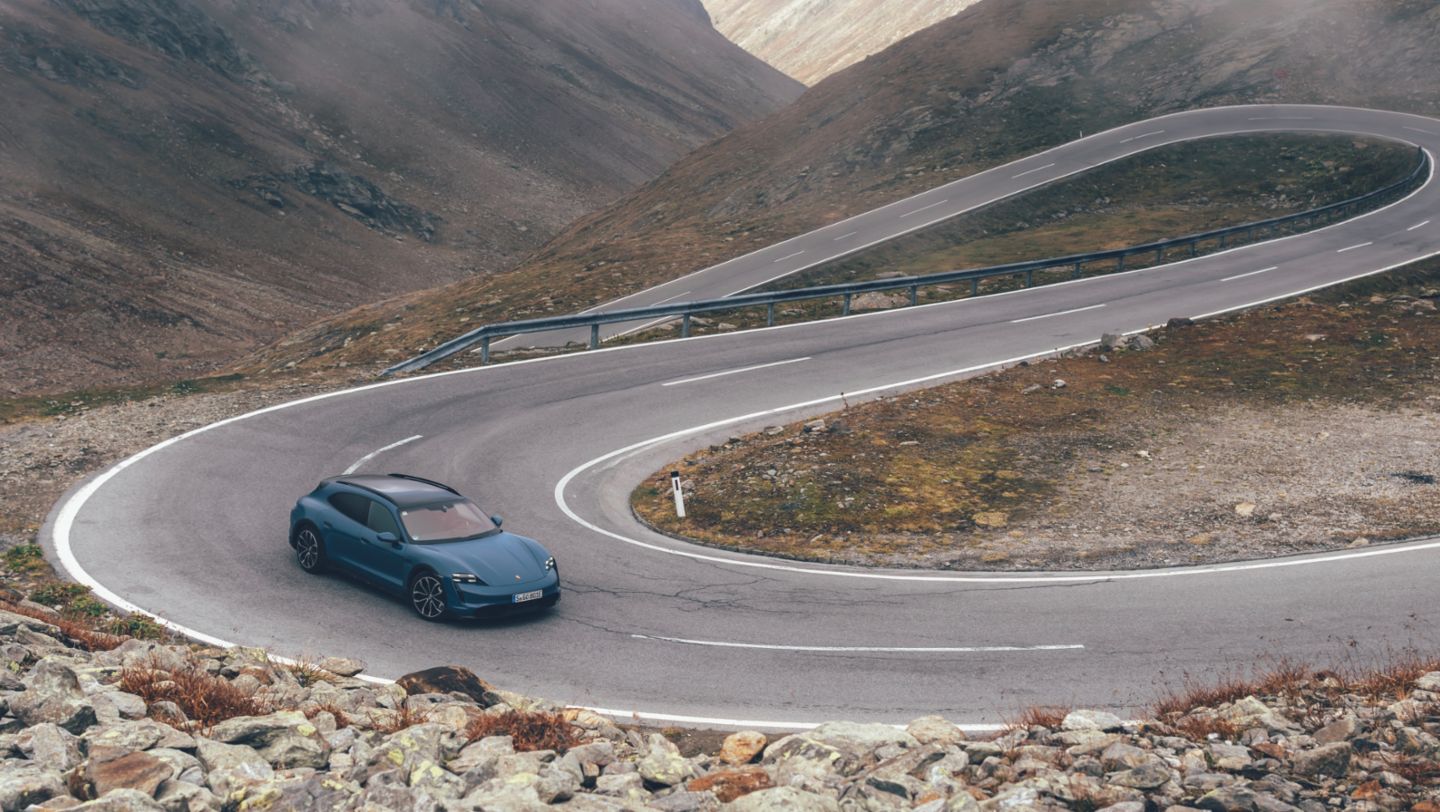
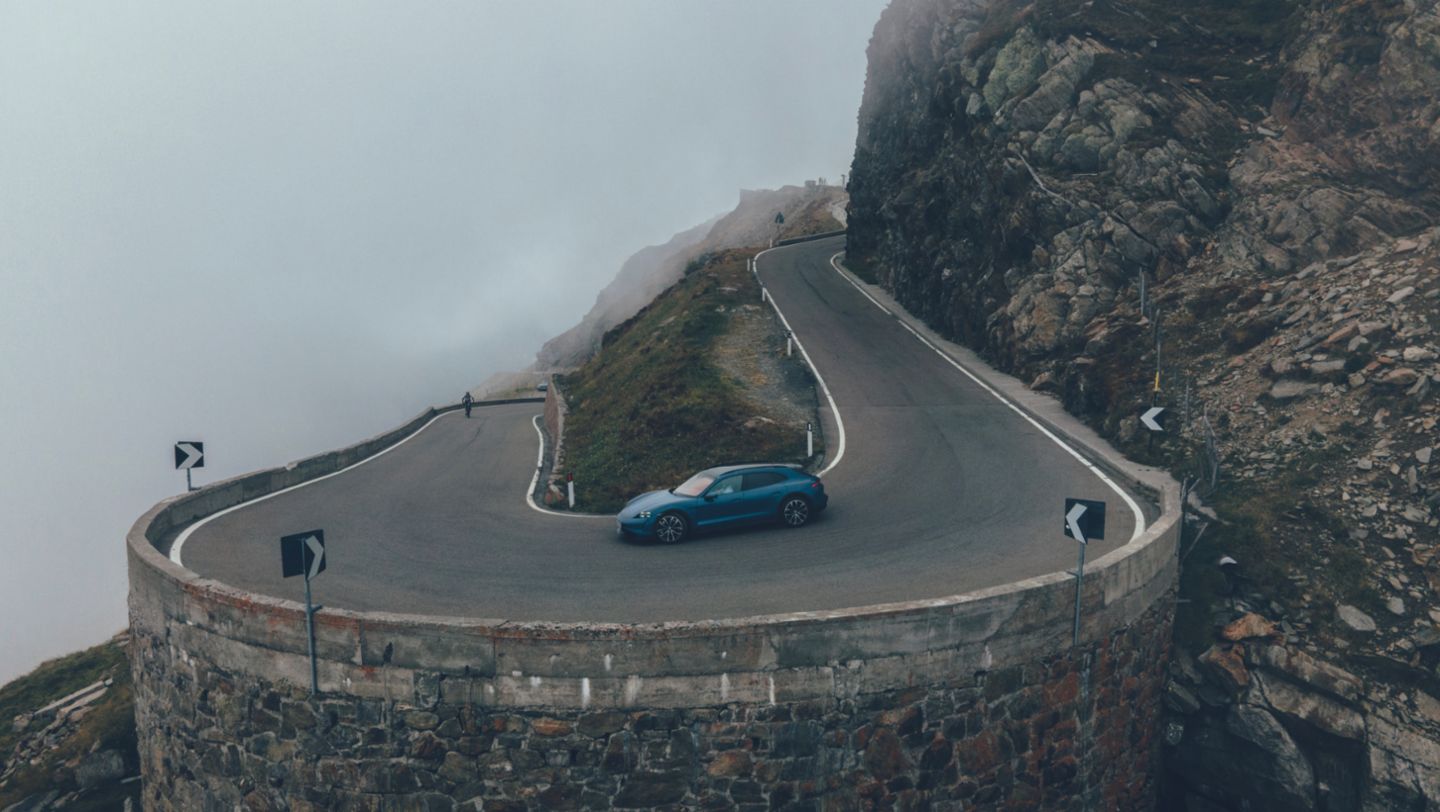
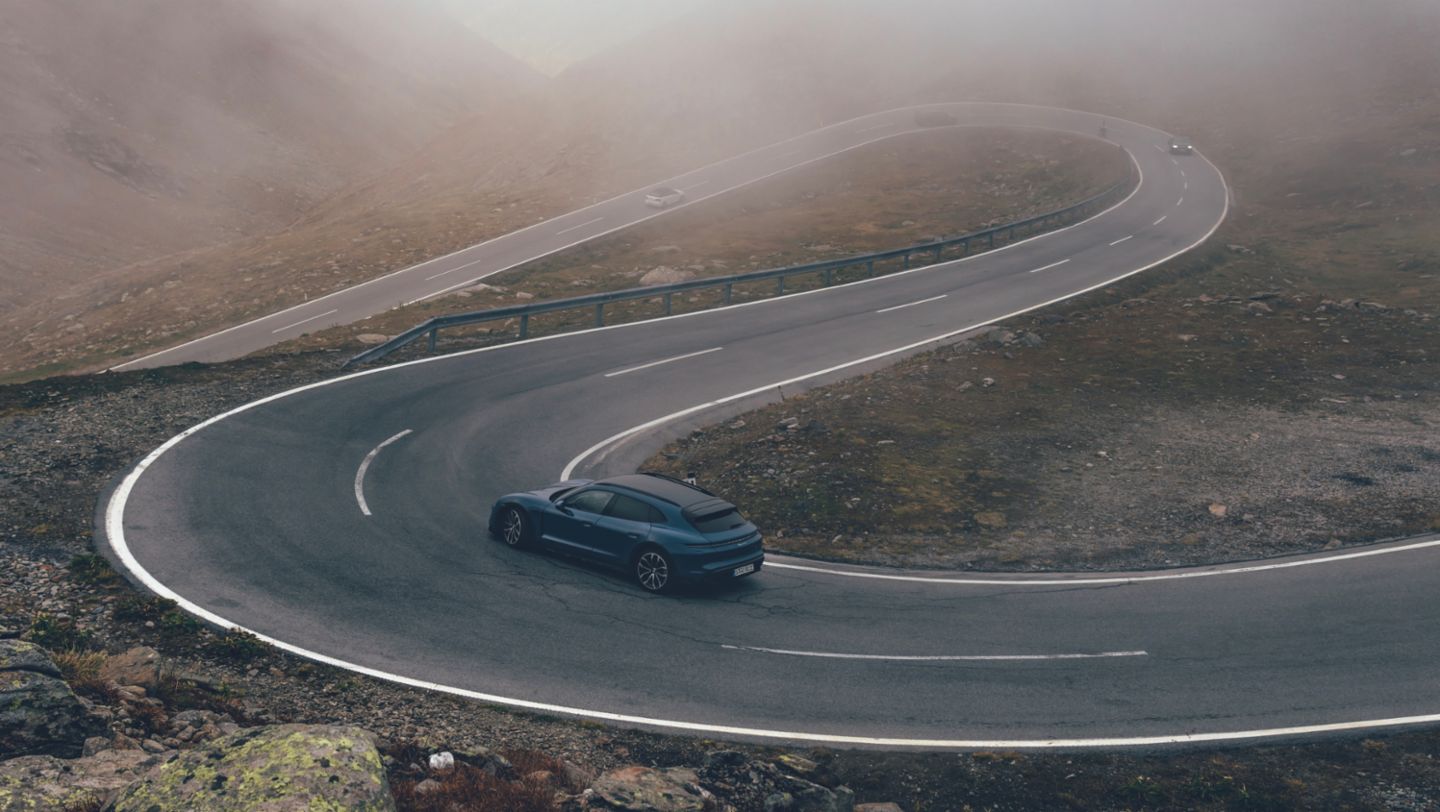
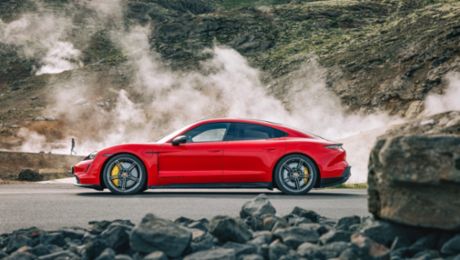
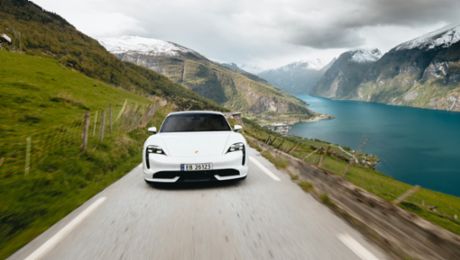
.jpeg/jcr:content/LakeLouise_High_Res%20(34%20of%2064).jpeg)